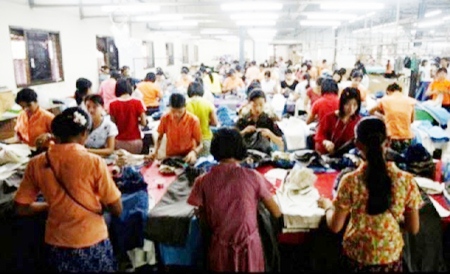BANGKOK, Jan 2 – Five to ten per cent of Thailand’s labour intensive businesses, unable to tolerate the new Bt300 daily minimum wage, will close down in the first quarter of this year, a leading industrialist said today.
Taweekit Chaturacharoenkhun, vice chairman of the Federation of Thai Industries (FTI), said small- and medium-sized enterprises which rely heavily on the labour force including the textile, service and agricultural sectors will be severely impacted by the Bt300 minimum wage, enforced nationwide from January 1, and the FTI has already informed the government of what it sees as the looming consequences.

Production costs will be much higher, making it almost impossible for those enterprises to compete in overseas markets, he said, adding that the impact of the minimum wage increase will be clearly seen in the second quarter.
Those who adjust and survive will be the real “heroes” but they will have to depend less on labour and turn to technology in their production, he said.
Mr Taweekit said some SME operators have moved their production bases to the Lao PDR, Cambodia and Vietnam while another imminent scenario is the closure of provincial factories now that the incentives of cheaper labour cost is terminated.
The upcountry daily minimum wage was formerly lower than in Bangkok and its suburban areas, but the government’s latest policy has entitled workers throughout the country to a Bt300 daily minimum wage.
He said some factories which had enjoyed lower minimum wages in the provinces will possibly relocate to Bangkok or to suburban areas to save logistics and other relevant costs.
Sommat Kunset, another FTI vice president, called on the government to urgently find measures to alleviate the SMEs’ woes and announce a concrete policy for labour intensive industries.
One example is the government’s back-up plan if it will go against the employment of migrant workers in the next five years, he said, adding that the government will also have to work out promotional measures for the relocation of labour intensive industries to neighbouring countries.
The government’s policy, particularly tax refunds for first-car buyers, was meant for the middle class, not the poor, while assistance for SMEs is vital to the country’s economic well-being, he said.




